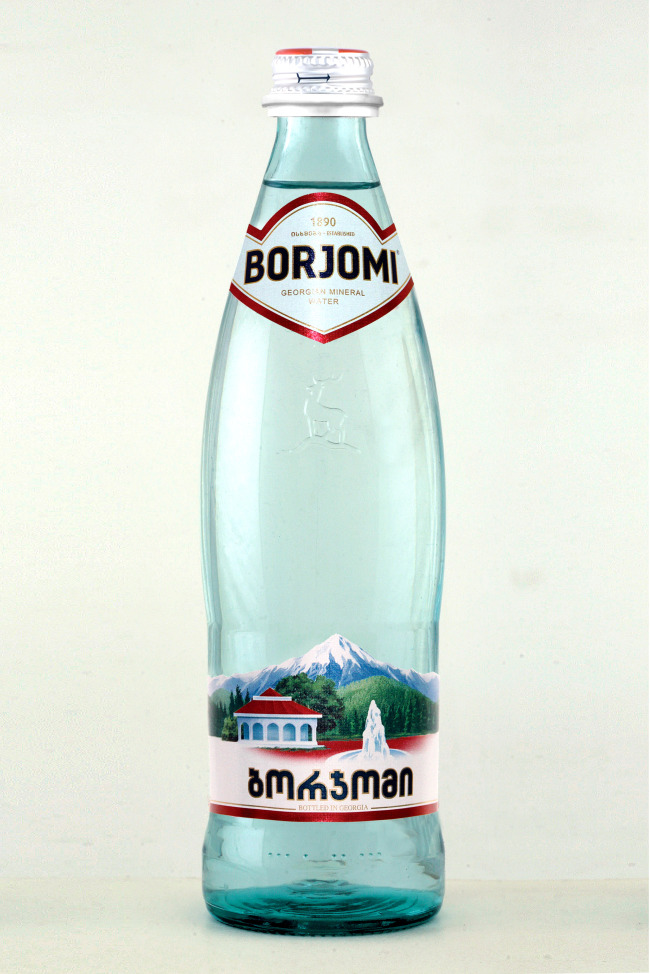The Borjomi mineral water -- an iconic commercial brand from modern Georgia -- will be available in Korea from November across various distribution centers and online stores.
Supplied by Korean company ANK PS, which has signed exclusive sales rights with IDS Borjomi Georgia, the website (www.borjomi-korea.co.kr) will sell 500-milliliter bottles of the carbonated water alongside physical retailers such as Hyundai Department Store. Other distribution channels are currently being discussed for wider supply.
“Borjomi mineral water is an iconic brand of modern Georgia,” Georgian Ambassador Nikoloz Apkhazava told The Korea Herald last week. “The well-known blue and green bottle of Borjomi can be seen everywhere across the country, at official meetings, private gatherings, shops, markets and pharmacies.”
 |
A bottle of Borjomi carbonated mineral water (ANK PS) |
The Georgian embassy has actively promoted the brand in Korea since its opening in Seoul in August 2011, providing the drink at National Day receptions, wine and mineral water tasting events, seminars and exhibitions. It has also publicized Borjomi through local and mass media.
Borjomi water is sourced from naturally carbonated volcanic springs in Georgia, which have been active for over 1,500 years. The natural pressure of carbon dioxide pushes water to the surface from 10 kilometers underground.
On its journey upward, the water is enriched by over 60 different healthy mineral compounds that have been infused in the rocks of the Caucasus Mountains.
Various research has shown that mineral water can be used to mitigate chronic gastritis, gastric ulcers and various other liver diseases and kidney stone problems. It is noted for its properties that can help cleanse the body of toxins and relieve hangover.
“Ice-cold freshwater streams through thickly forested mountains at high altitudes, a unique ecological setting for the mineral springs,” according to IDS Borjomi Georgia.
The carbonated water industry in Korea has expanded sharply over the last few years and is expected to grow continuously. The sector grew from $70 million to $80 million over the last one year, as an increasing number of Koreans savor its healthy properties and unique taste.
The drink, which has been mass produced since the mid-19th century, is now sold in over 50 countries worldwide. It adheres to strict environment standards and health regulations imposed by governments of the European Union, the US, Canada and many Asian countries.
By Joel Lee (
joel@heraldcorp.com)








![[Today’s K-pop] Blackpink’s Jennie, Lisa invited to Coachella as solo acts](http://res.heraldm.com/phpwas/restmb_idxmake.php?idx=644&simg=/content/image/2024/11/21/20241121050099_0.jpg)